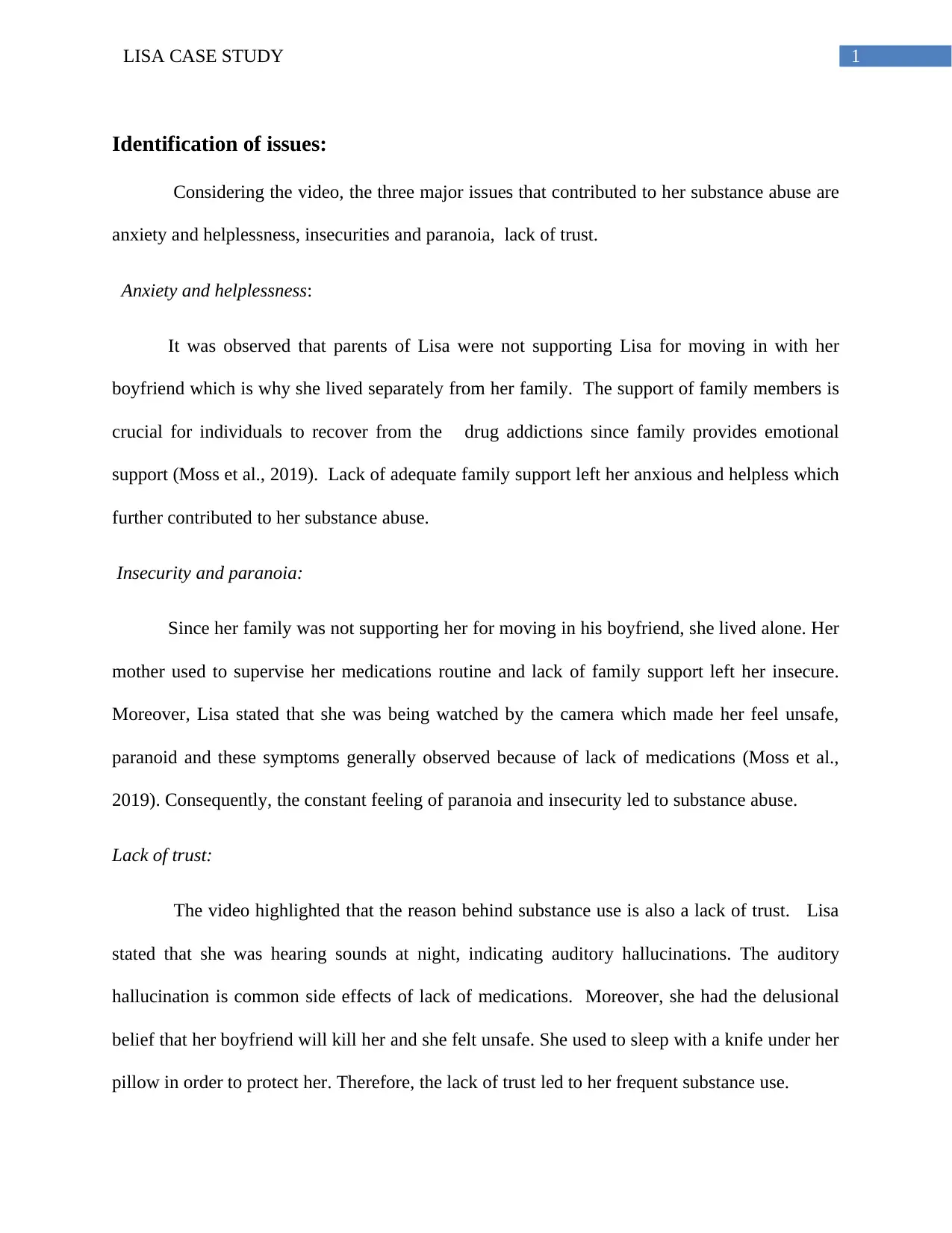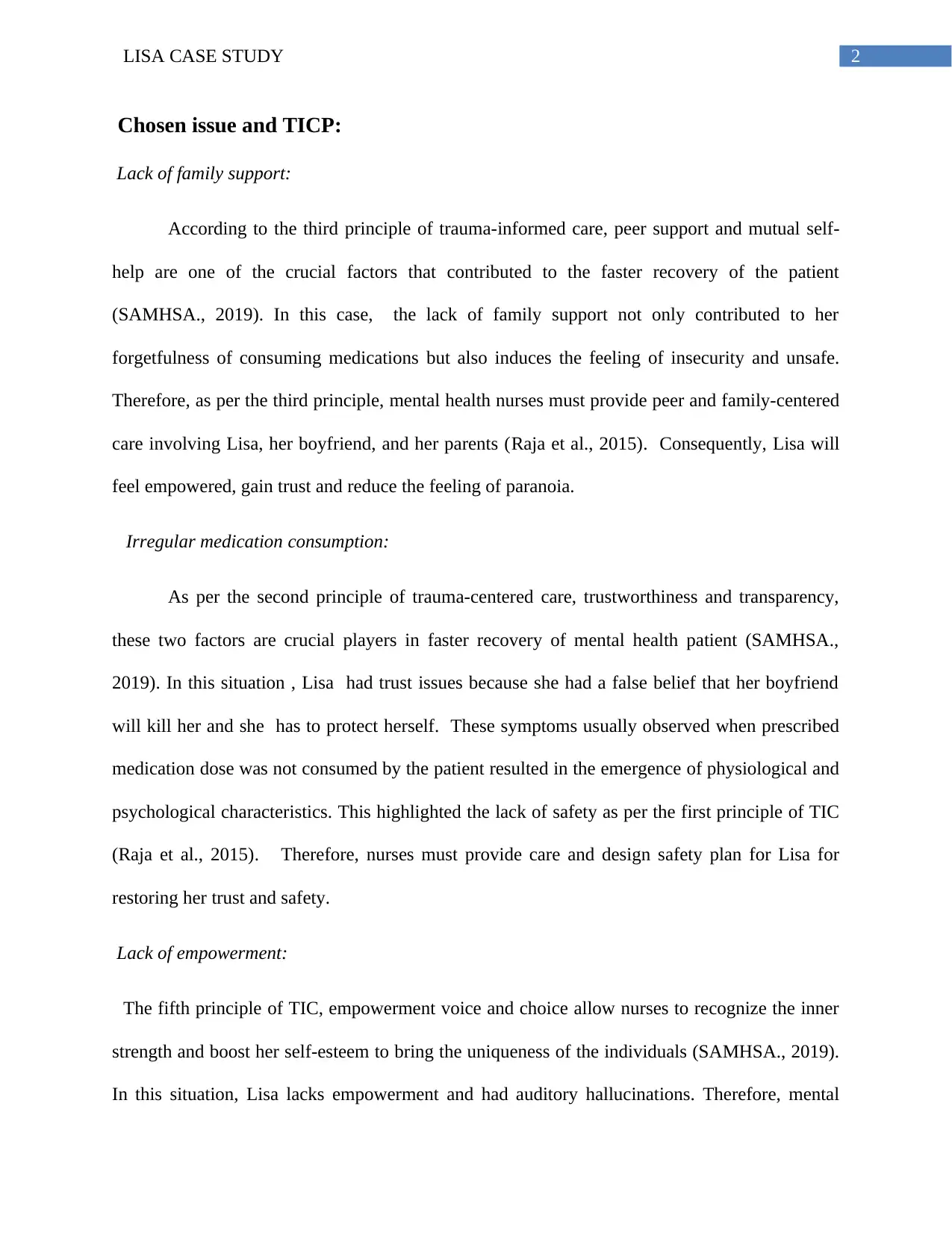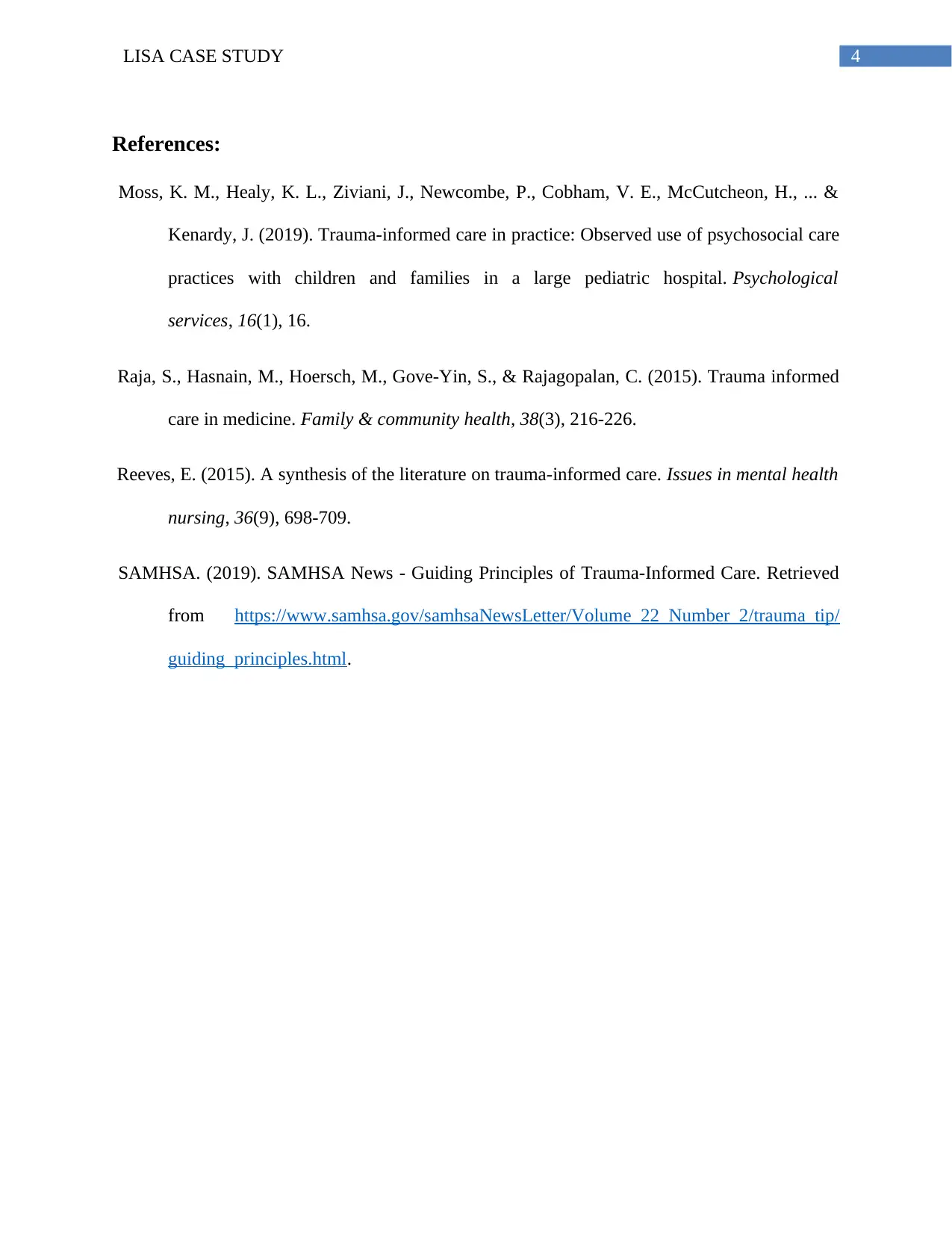Case Study Analysis: Lisa's Substance Abuse, Issues, and TICP
VerifiedAdded on 2023/01/23
|5
|810
|89
Case Study
AI Summary
This case study analyzes Lisa's substance abuse, identifying anxiety, helplessness, insecurity, paranoia, and lack of trust as major contributing factors. The study examines these issues in the context of trauma-informed care (TICP), emphasizing the importance of family support, trustworthiness, and empowerment. It explores how a lack of family support contributes to Lisa's anxiety and irregular medication consumption, leading to feelings of insecurity and paranoia. The application of TICP principles, including peer support, trustworthiness, and empowerment, is discussed to improve Lisa's mental health outcomes. The analysis emphasizes the need for mental health nurses to provide family-centered care, design safety plans, and incorporate a person-centered approach to address Lisa's challenges and foster her recovery.
1 out of 5












![[object Object]](/_next/static/media/star-bottom.7253800d.svg)